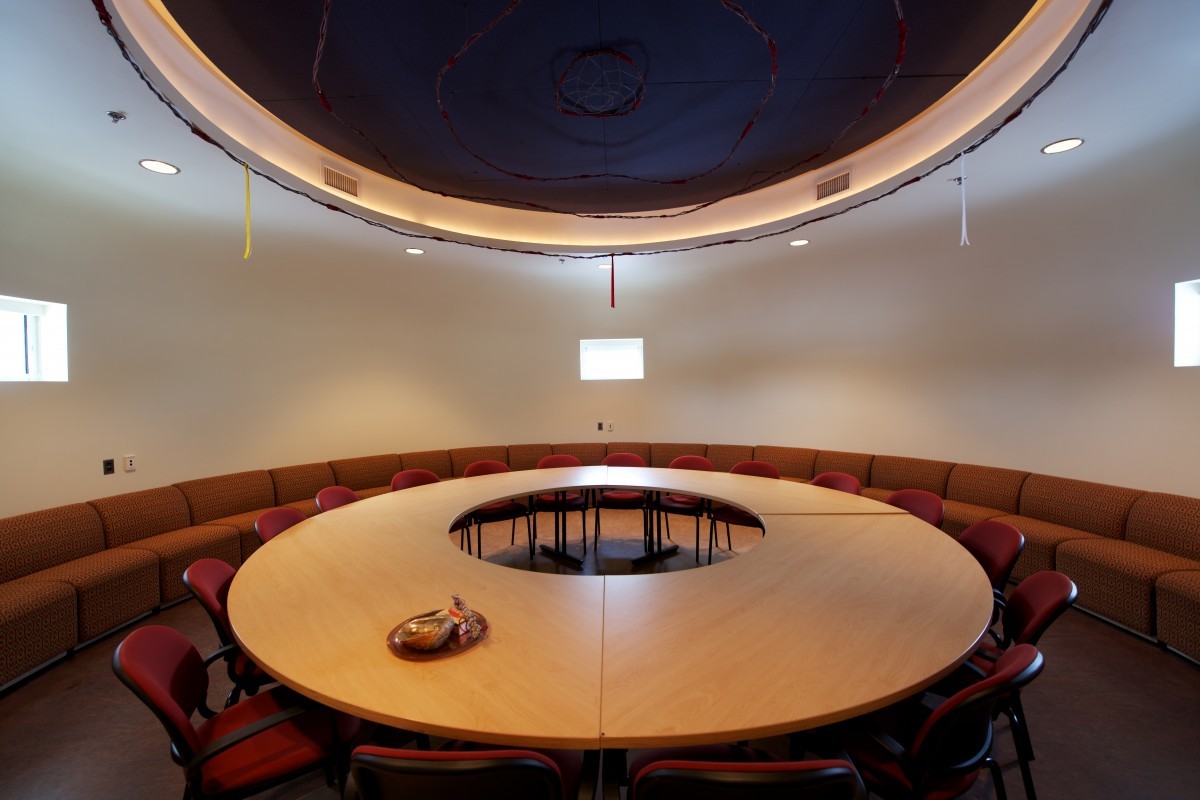
U of M announces Indigenous Advisory Circle
Debra Diubaldo never thought of herself as university material. “My high school experiences were not positive and I had a lot of doubt and anxiety to deal with,” she says.
“I was lucky to have an older sister who encouraged me and helped me to see that I was smart enough to reach my potential and then some. I achieved my bachelor of social work degree while working full-time and raising my children as a single parent. It was a long journey, but it changed my life,” says Diubaldo who is now an Aboriginal academic advisor/counsellor and selection co-ordinator with the U of M’s Inner City Social Work Program.
“My first role is to walk with all first-year students and support them through what we know is their most vulnerable time for dropping out,” she says.
It is the heart and spirit of her experiences that Diubaldo brings to the table, as one of 11 individuals named to the U of M’s inaugural Indigenous Advisory Circle (IAC).
The IAC will advise Deborah Young, executive lead for Indigenous Achievement, who has the university-wide responsibility for overseeing the strategic directions of the University related to Indigenous activities, and for co-ordinating and facilitating the development of initiatives and programs that will advance Indigenous Achievement.
“I’m really looking forward to working with this group. They bring a diversity of views and perspectives on Indigenous education and research,” says Young. “They will inform what Indigenous student supports and celebrations we will need to move forward as a university community.”
The members of the IAC are:
- Camille Callison, Indigenous services/liaison librarian
- Christine Cyr, director, Aboriginal Student Centre
- Frank Deer, director of Indigenous initiatives, Faculty of Education
- Debra Diubaldo, academic advisor/counsellor, Faculty of Social Work
- Brenda Gunn, assistant professor, Faculty of Law
- Brenda Lafreniere, counsellor, Access and Aboriginal Focus Programs, Extended Education
- Margaret Lavallee, Elder-in-residence
- Norman Meade, Elder-in-residence
- Ry Moran, director, National Centre for Truth and Reconciliation
- Justin Rasmussen, Indigenous graduate student advisor, Aboriginal Student Centre/Faculty of Graduate Studies
- Wanda Wuttunee, professor, department of Native studies, Faculty of Arts
Like Diubaldo, Wanda Wuttunee knows how important having strong student supports are. “I have seen many students struggle in my classes and in the support program I directed,” says Wuttunee. “(As part of the IAC) I hope to help in developing strategies that will allow any Aboriginal student to identify the person or the place to visit where the result is caring, direction and support so the student can dig in and succeed if that is at all possible.
“The IAC is a critical piece of the puzzle for forming partnerships and succeeding at a challenging task. IAC members will bring skills and experiences for refining an awesome new view at the U of M. There will be healthy discussions of important issues that will help our executive lead of Indigenous Achievement have the best information to draw on and drive this effort effectively. It will make a difference.”
The IAC will provide advice on the further development and implementation of the five-year Indigenous Achievement Action Plan, which supports the university’s commitment to Indigenous Achievement in Taking Our Place. This includes everything from ensuring the Indigenous Student Success Strategic Enrolment Management Plan’s targets are met, to building relationships with Elders, cultural specialists and traditional knowledge keepers, to expanding curriculum that reflects Indigenous knowledge, to making the university a more welcoming place for all Indigenous students, faculty and staff.
“As the strategic plan sets an ambitious goal for promoting Indigenous achievement, the members of the IAC are well positioned to provide advice to the Executive Lead on working toward achieving those goals by those who work directly in units, with students and community partners,” says Brenda Gunn, who regularly attends the Canadian Association of University Teachers Aboriginal Academic Forum.
“I am well aware of the issues Indigenous faculty face in the academy, which is critical for recruitment and retention of Indigenous faculty,” she says.
Gunn also has connections with Indigenous programs in Australia, Hawaii and New Zealand. “These connections have expanded my knowledge of best practices in delivering Indigenous academic programming and raising awareness of Indigenous issues within the academy,” says Gunn.
“It is a great honour to have such a high calibre group of individuals sitting on the IAC. The U of M is moving forward on a very ambitious Indigenous Achievement agenda, and I am confident with the support of the IAC and the rest of the university – Indigenous and non-Indigenous – we will make great strides towards Indigenizing the U of M,” says Young.






